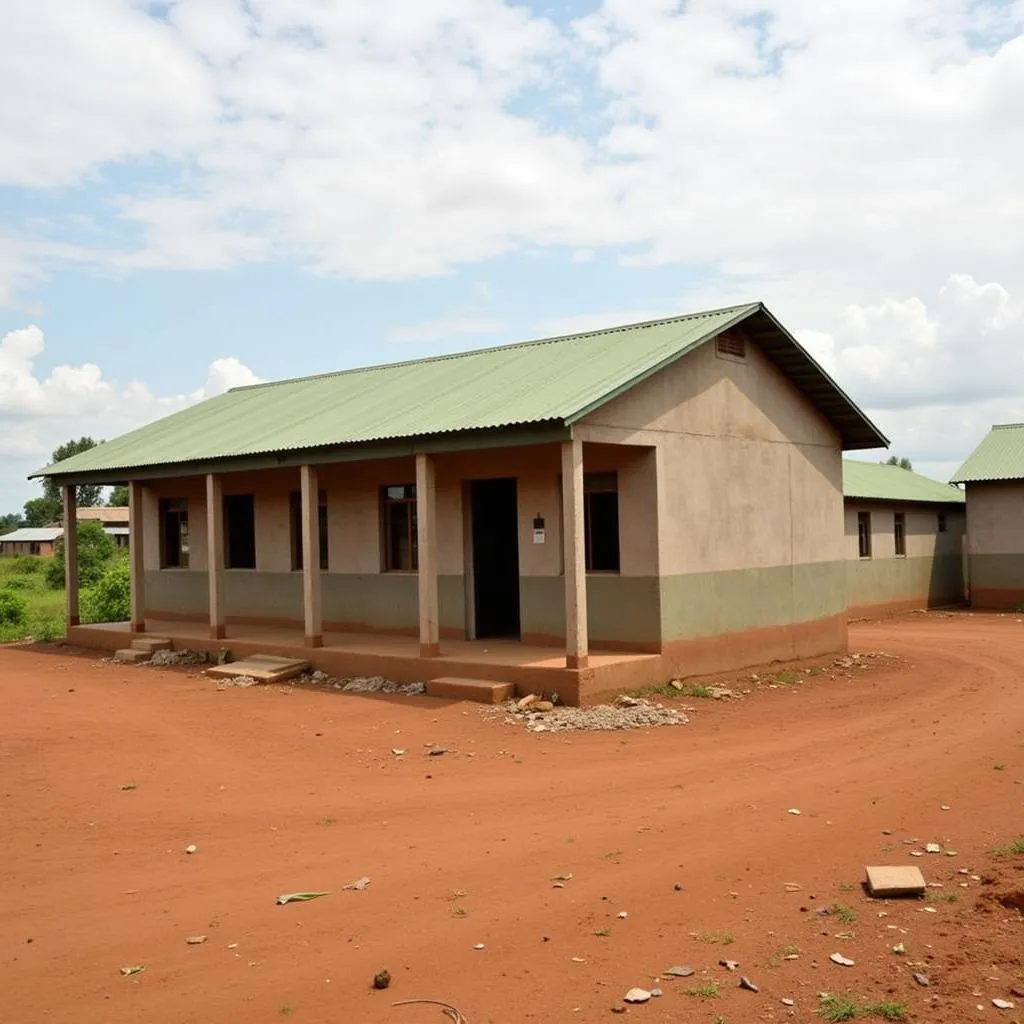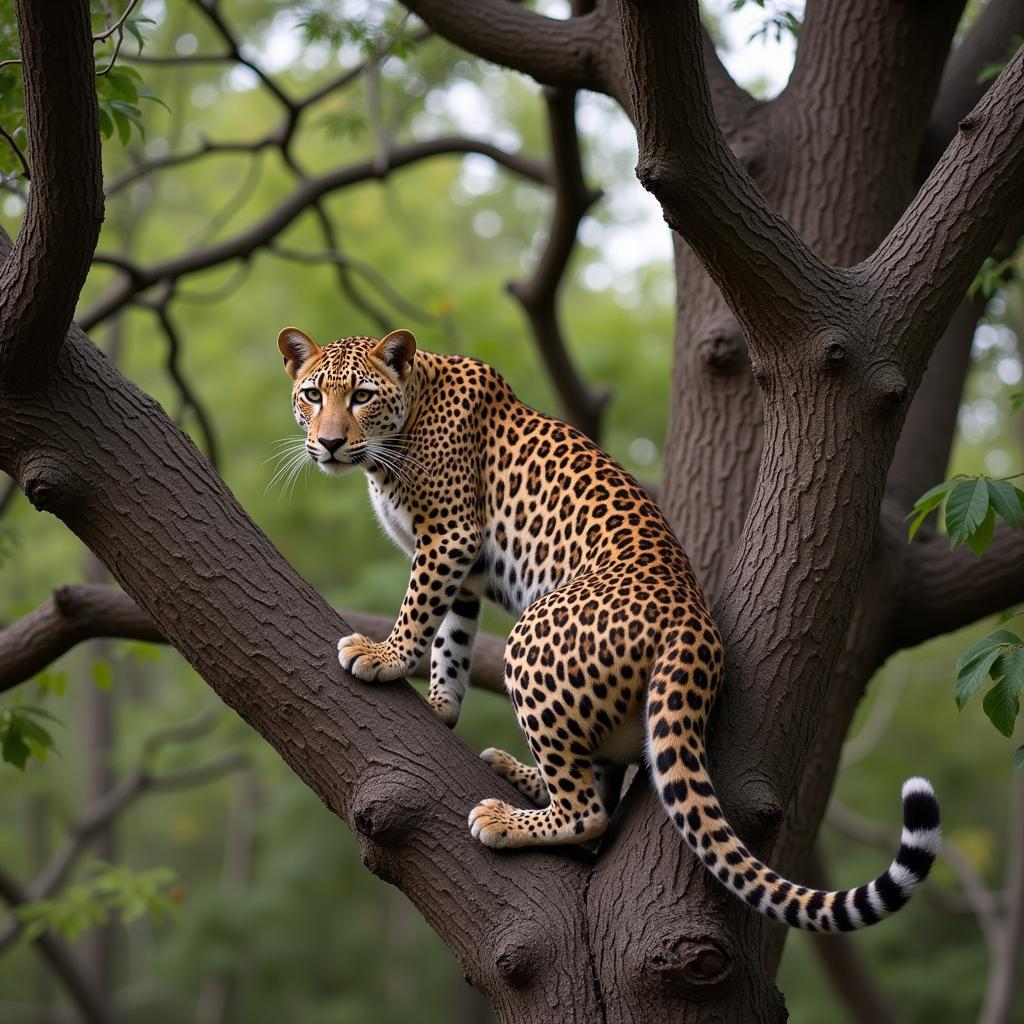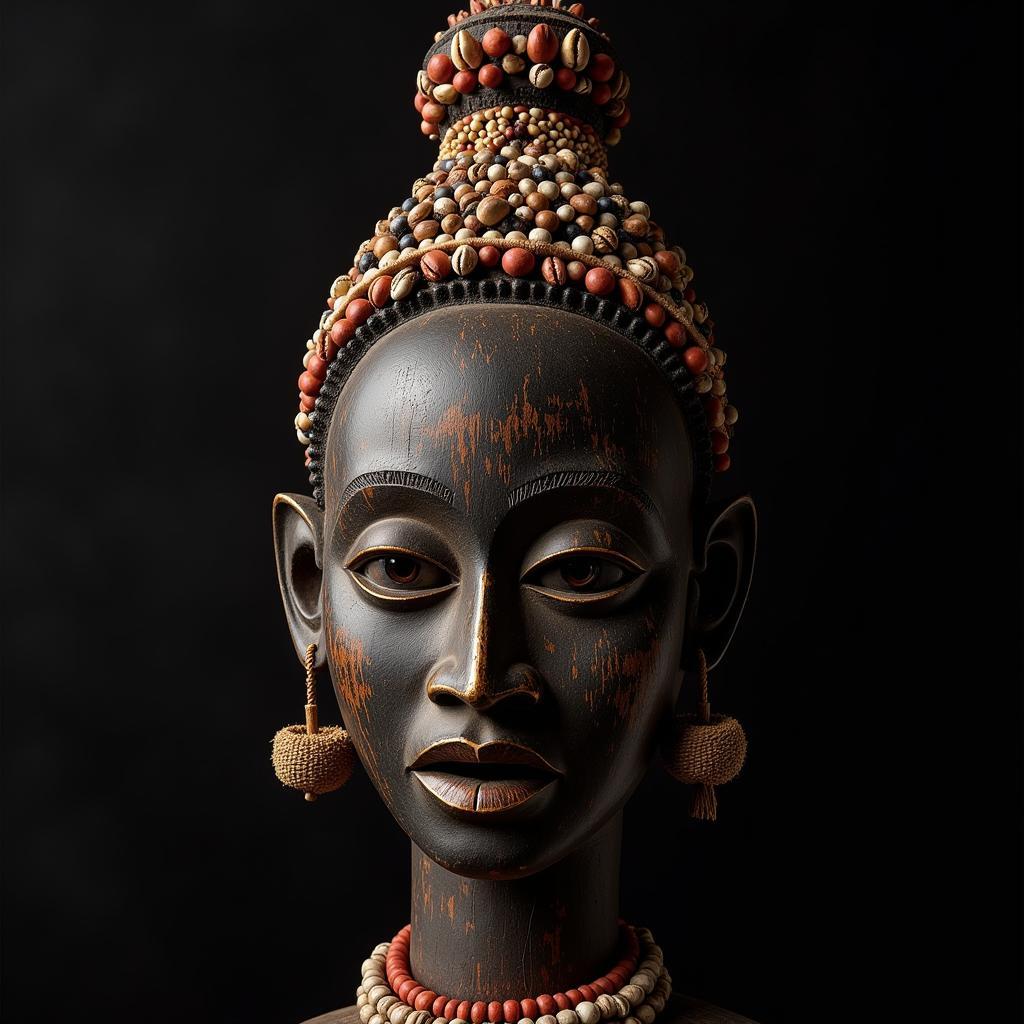Exploring the Diverse World of African Genres
Africa is a continent bursting with rhythm, melody, and storytelling. This rich tapestry of culture is reflected in its diverse musical landscape, often categorized under the umbrella term “African Genres.” However, to truly appreciate the depth and breadth of African music, we must go beyond this simplistic label and delve into the unique characteristics of each genre, exploring its historical roots, cultural significance, and evolution over time.
Unmasking the Misconception: It’s More Than Just “African Music”
While the term “African genres” can be a useful starting point, it’s crucial to understand that it encompasses a vast and varied soundscape. Each region, country, and even tribe within Africa boasts its own distinct musical traditions, shaped by a confluence of factors including language, history, social structures, and spiritual beliefs.
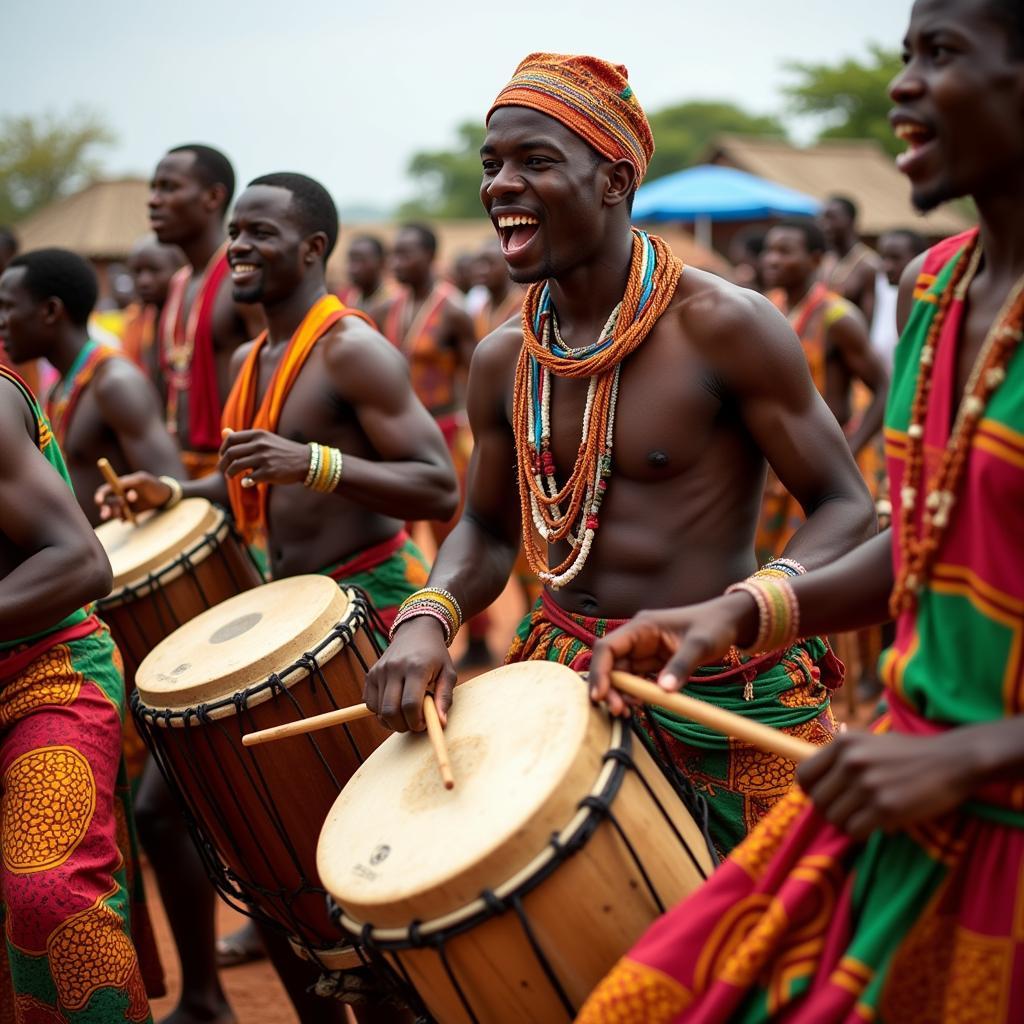 African Drum Circle
African Drum Circle
A Journey Through Rhythm: Popular African Genres
To embark on a journey through African genres is to embark on a journey through the soul of a continent. Here are a few prominent genres that offer a glimpse into this diverse musical landscape:
1. Afrobeat: A Fusion of Politics and Groove
Originating in Nigeria in the 1970s, Afrobeat is a genre characterized by its infectious polyrhythms, heavy drum beats, and powerful vocals often infused with political commentary. Pioneered by the legendary Fela Kuti, Afrobeat blends elements of jazz, funk, and traditional Yoruba music, creating a sound that is both danceable and thought-provoking.
2. Mbalax: The Heartbeat of Senegal
Mbalax is the national music of Senegal, known for its distinctive use of the tama (talking drum) and its high-energy rhythms. Rooted in the traditional music of the Wolof people, Mbalax has evolved over the years to incorporate modern instruments and influences, giving rise to subgenres like Mbalax-Mbalax and Mbalax-R&B.
3. Highlife: Ghana’s Gift to the World
Highlife, originating in Ghana in the 1920s, is a genre that reflects a blend of African rhythms and Western musical influences. Characterized by its use of brass instruments, guitars, and vocals, Highlife often features sophisticated melodies and harmonies. This genre has played a significant role in shaping the sounds of West African music, influencing generations of musicians.
4. Kizomba: Angola’s Sensual Dance Music
Kizomba, born in Angola in the 1980s, is a genre known for its romantic melodies, sensual rhythms, and intimate dance style. Blending elements of Angolan Semba with influences from Caribbean zouk, Kizomba has gained international popularity as both a music and dance form.
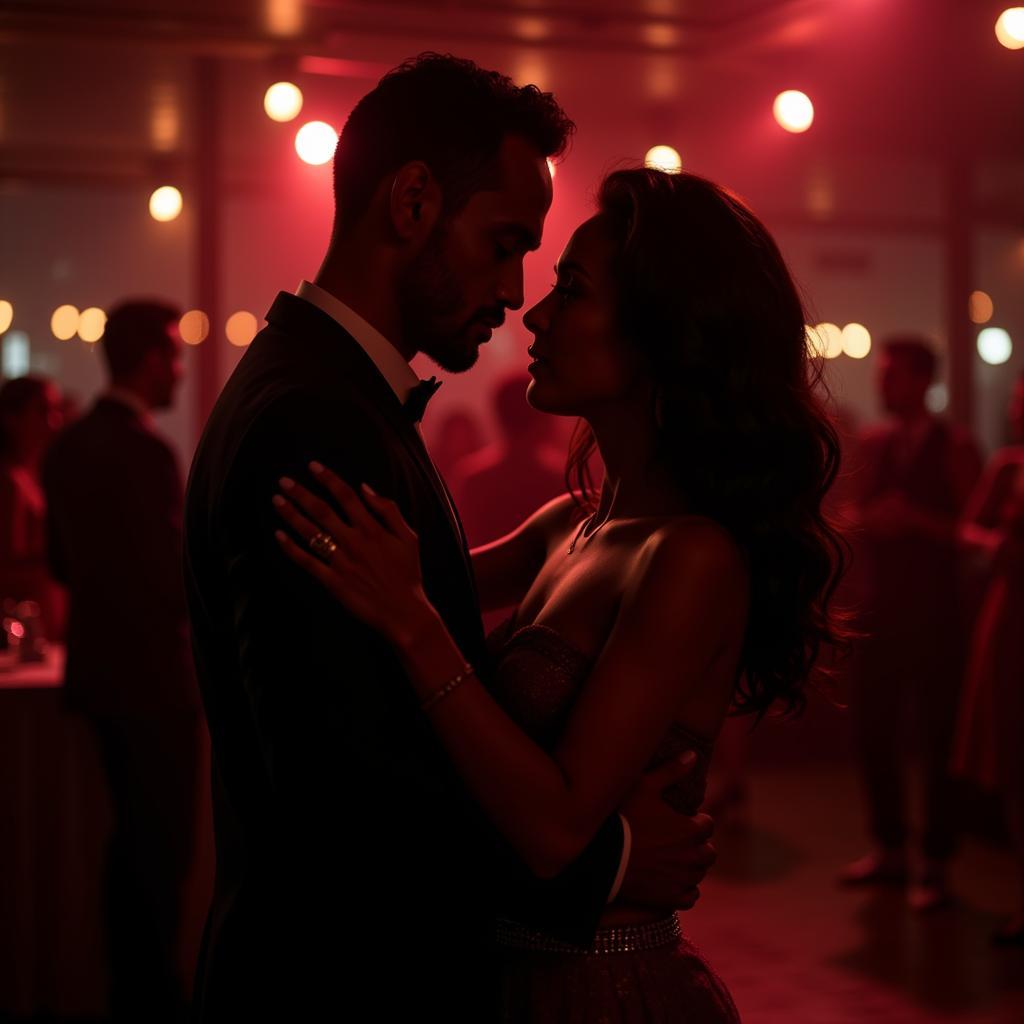 Kizomba Dancers
Kizomba Dancers
5. Taarab: The Soulful Sounds of East Africa
Taarab, primarily associated with Zanzibar and the Swahili coast, is a genre known for its poetic lyrics, intricate melodies, and use of traditional instruments like the oud and qanun. Influenced by Arabic, Indian, and African musical traditions, Taarab often features themes of love, loss, and everyday life.
Beyond the Big Names: Exploring Regional Gems
While these popular genres offer a taste of African music, it’s important to recognize the countless regional variations and subgenres that exist across the continent. From the soulful desert blues of Mali to the energetic Chimurenga music of Zimbabwe, each region offers a unique sonic tapestry waiting to be explored.
“To limit oneself to the well-known African genres is to miss out on the true richness and diversity of the continent’s musical heritage,” says Dr. Abena Oduro, an ethnomusicologist specializing in West African music. “Each region has something unique to offer, and it’s in these less-explored areas that we often find the most authentic and captivating musical expressions.”
The Power of Music: More Than Just Entertainment
African genres are more than just a collection of sounds; they are a reflection of the continent’s history, culture, and social fabric. Music plays an integral role in African societies, accompanying rituals, ceremonies, storytelling, and everyday life. It serves as a powerful tool for communication, social commentary, and cultural preservation.
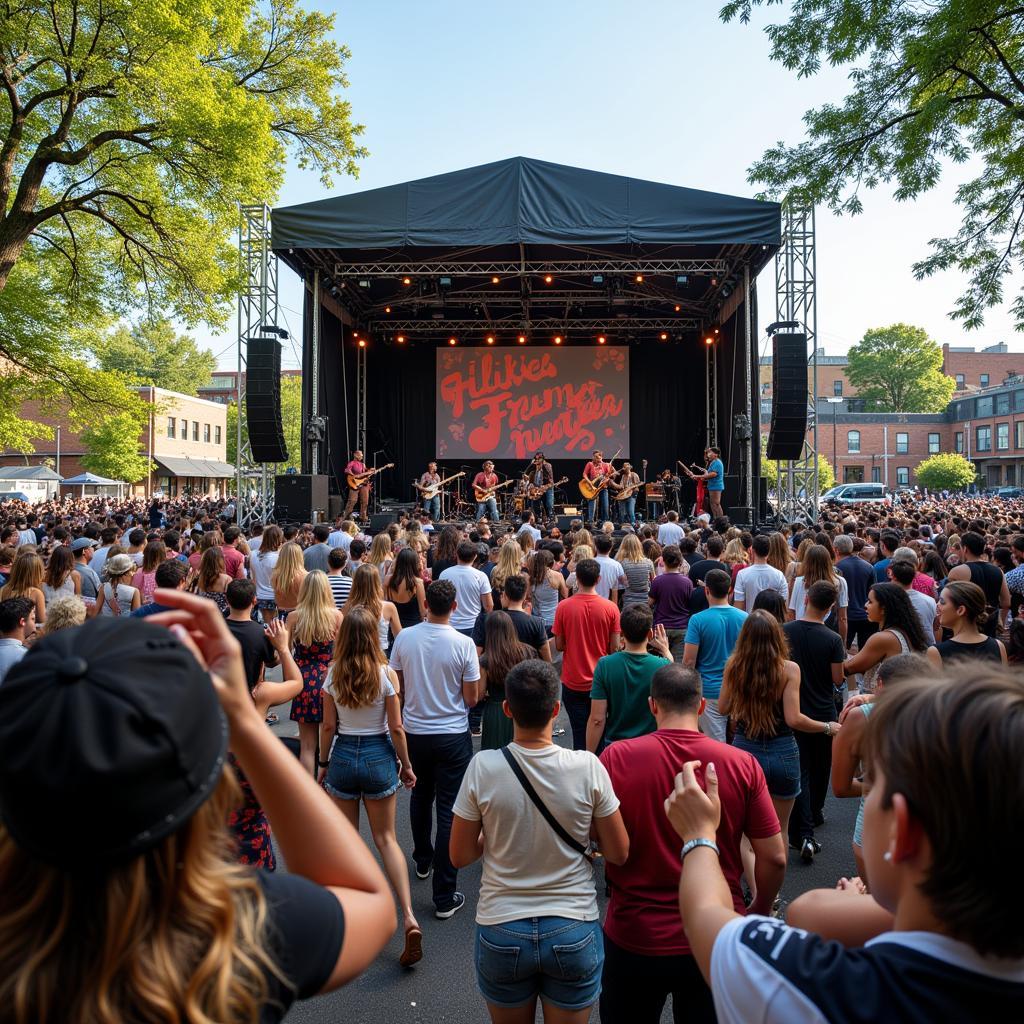 African American Roots Music Festival
African American Roots Music Festival
Conclusion: Embracing the Rhythms of Africa
The world of African genres is a vast and ever-evolving one. From the pulsating rhythms of Afrobeat to the soulful melodies of Taarab, each genre offers a unique window into the diverse cultures and traditions of the continent. By exploring these genres, we can gain a deeper appreciation for the richness and complexity of African music, and its profound impact on the world.
So, put on your headphones, open your ears, and let the rhythms of Africa transport you to a world of musical wonder.
FAQs about African Genres
1. What is the most popular African genre?
It’s difficult to pinpoint one “most popular” genre as musical preferences vary widely. However, Afrobeat, Mbalax, and Kizomba have gained significant international recognition.
2. What instruments are commonly used in African music?
African music utilizes a vast array of instruments, including drums (djembe, tama, talking drums), string instruments (kora, ngoni, oud), wind instruments (flute, horns), and thumb pianos (mbira).
3. Where can I listen to a variety of African genres?
Streaming platforms like Spotify, Apple Music, and YouTube Music have dedicated sections for African music, while online radio stations offer a diverse range of genres.
4. Are there any documentaries or films about African music?
Yes, several documentaries and films explore African music and its cultural significance. Some notable examples include “When We Were Kings” (about Fela Kuti), “Amandla! A Revolution in Four-Part Harmony” (South African music), and “The Soul of Mbira” (Zimbabwean music).
5. How is technology influencing African genres?
Technology is playing a significant role in the evolution of African music. Modern production techniques, digital distribution platforms, and collaborations with international artists are shaping the sounds and reach of African genres.
6. How can I learn more about a specific African genre?
Online resources, books, documentaries, and ethnomusicological research offer valuable insights into specific African genres. Attending concerts, festivals, and cultural events can provide firsthand experiences.
7. What is the significance of dance in African music?
Dance is often inseparable from African music, with specific dance styles accompanying different genres. Dance serves as a form of expression, storytelling, social interaction, and cultural celebration.
Explore More:
Need help navigating the world of African music? Contact us at +255768904061, email kaka.mag@gmail.com, or visit us at Mbarali DC Mawindi, Kangaga, Tanzania. Our team is available 24/7 to assist you.
